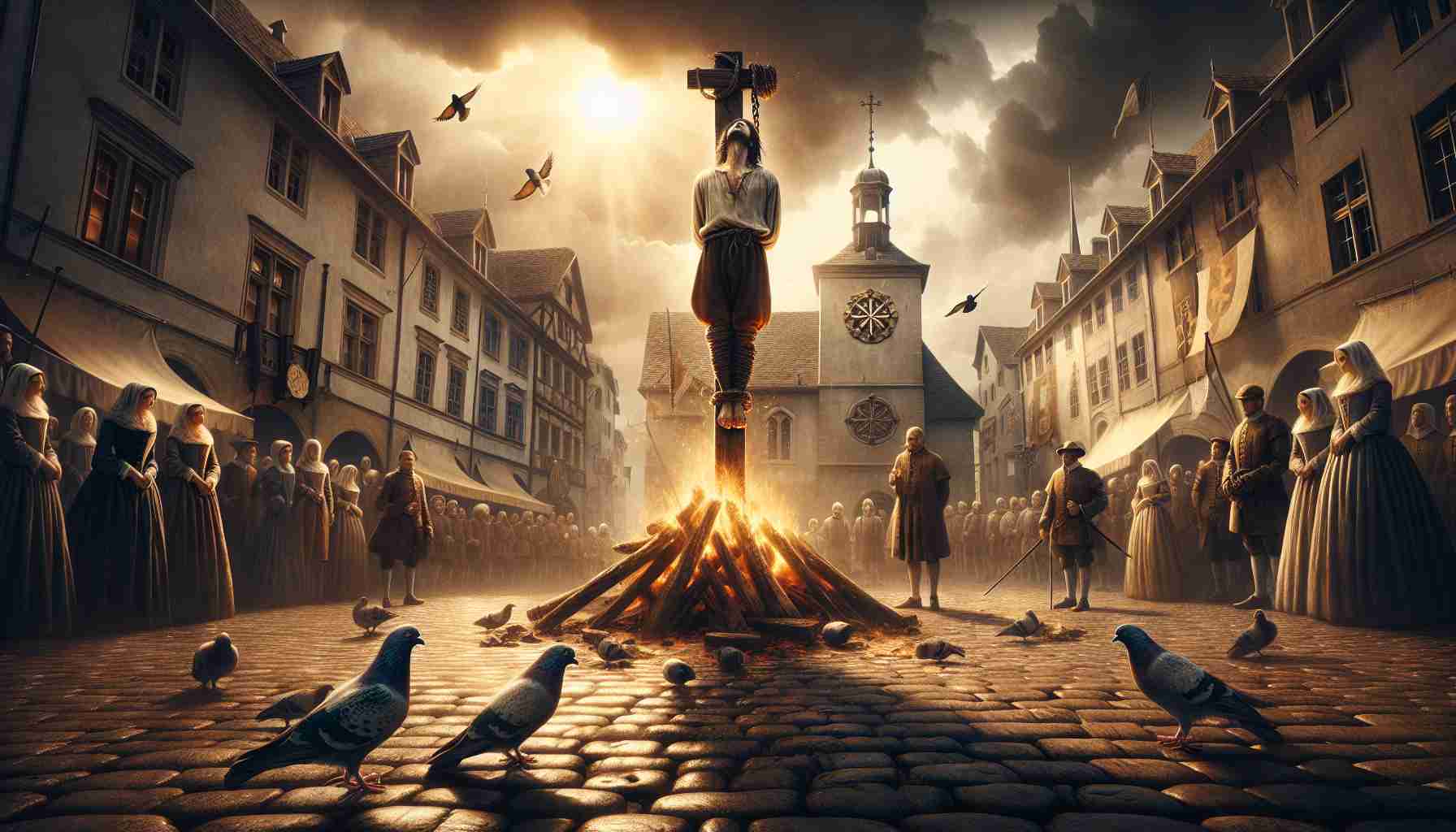

Flames curled skyward like tongues of judgment amid the murmurs of the crowd. Morning sun filtered through a shroud of ash over the town square of Constance, casting long shadows across cobblestone and conscience. The scent of burning wood and human conviction hung heavy, stirring the onlookers' bellies with dread—or awe. At the stake stood a man who had dared to speak truth to power. His body would perish this day, but his words had already taken root in the hearts of Bohemians who dared to hope for a purified Church.
Jerome of Prague, eyes hollow from imprisonment yet bright with defiant fire, did not blink against death’s heat. Steel had not broken him in the inquisition chambers, nor chains bent his testimony. Softened first by fear, yes—he had recanted once. But truth, once seen, will not stay buried. In time, Jerome retracted that false confession before this same council, choosing flames over betrayal of conscience. And now the final act.
Across from the stake, Bishop von Richenthal turned his face away. He had read aloud the sentence with the gravity of Pontius Pilate, yet even he could not quench his unease. Jerome had spoken too clearly, too wisely for a heretic. No scandalous blasphemy had crossed his lips—only urgent calls for reform, echoes of John Wycliffe and the already-martyred Jan Hus. Even as pyres consume men, ideas leap free through fire.
A boy clutched his mother’s skirts at the edge of the crowd. He had not known this man, but would never forget him. Nor would the others—masons, scribes, soldiers, merchants—who stared from the safety of anonymity. Some spat curses. Some whispered prayers. A few wept. And a few, later, would take up arms under the chalice banner of the Hussites, smoldering now with fury that incense and Latin had cost too many lives.
Jerome’s voice rose one final time across the square—not in agony, but proclamation. “You burn me today for loving the truth more than I loved my life. But I say to you: in dying, I lose nothing.”
From the Gospel exiled from the masses in Latin liturgies, he had read much in secret—Hebrews, where the writer spoke of the faithful: “Some suffered mocking and flogging, even chains and imprisonment. They were stoned, they were sawn in two... they were killed with the sword. They went about destitute, persecuted, mistreated—of whom the world was not worthy.” The words had become marrow in his bones. Truth demanded witnesses. If it cost blood, so be it.
A roar as dry thorns caught fire. The executioner, slack-jawed, had been warned to use green wood for a slower burn, as was practiced on heretics—to smoke them into unwilling remorse. But even his foul craft could not steal the dignity of Jerome’s resolve. The martyr did not scream. Ash swallowed his frame; his soul had long before flown free.
In Prague, news reached the university through a crumpled letter bearing the red wax seal of Constance. Students gathered around Master Kovář, reading each line aloud, stunned silent. The man they had once mocked for his fervor now seemed carved of stone and flame. Jan Hus’s death had cracked the dam. Jerome’s had broken it.
Soon Bohemia would rise—not just in rebellion, but in reformation. With swords, yes, but with sermons too. Bold preachers would declare that Christ alone, not bishops nor popes, held the keys to the Kingdom. Bread and wine would be shared freely with peasants, hitherto denied the Eucharist in both kinds. The chalice—once clutched tightly by the high altar—became a symbol of defiance, raised high on Hussite banners like the cross of old.
And Jerome’s voice would echo beyond the ashes. Luther, a monk still reading in shadows, would one day write of Hus and Jerome with reverence. Reform did not die beneath imperial robes or papal decrees. It breathed still—in Scripture, in song, in every soul stirred by a fire deeper than fear.
The stone platform in Constance cooled overnight. Ash settled into cracks where weeds would soon push up. History buried its bones in silent squares, but memory refused the cover of dust. Every martyr plants a root none can unearth.
And the boy who watched that day? He learned to write scripture in Czech. He taught his son to sing psalms in the field. And his grandson would march with a chalice sewn on his sleeve—not because he loved war, but because a man named Jerome once chose fire over falsehood.
Thus did truth endure. Not by thrones, but by those who, in dark hours, loved light more than life.